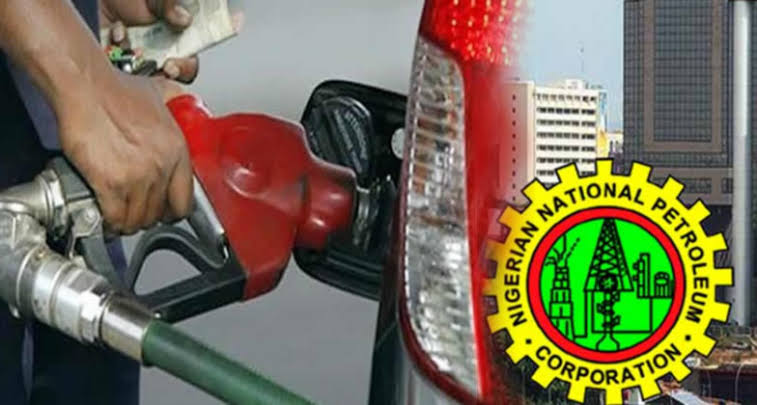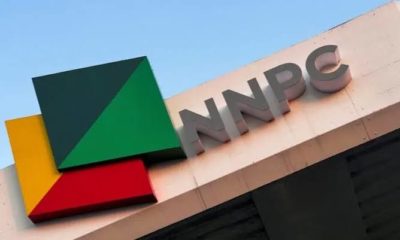Oil
Marketers Claim Subsidy Removal Doubles Depot Petrol Prices

Following the removal of subsidies since May 29, the prices of petrol at depots have surged by over 100%, according to report.
Mike Osatuyi, the National Controller of Operations, revealed to The PUNCH on Tuesday that numerous businesses in the downstream sector were facing significant challenges in maintaining their operations due to the sharp increase in product prices at depots.
According to the Controller, the price of a 33,000 metric tons tanker of petrol has skyrocketed from N8 million to between N22 million and N23 million, depending on the proximity of the filling station to the depots, following the removal of subsidies.
It was observed that despite the assurance from the Nigerian National Petroleum Company Limited (NNPCL) about sufficient fuel reserves to last an additional month after subsidy removal, most filling stations in Lagos remained closed.
He said, “There is fuel in the country because NNPCL told us they had imported enough products to last about 28 days. Maybe those stations were shut because they don’t have money to buy fuel.
“Price of one tanker of petrol is now around N22.5m in Lagos and Ogun and around N23m for those outside Lagos and Ogun.”
In response to inquiries about access to forex for importation, Osatuyi explained that marketers were required to go through clearance processes and obtain licenses before they could begin mass importation.
An undisclosed source within the Depots and Petroleum Marketers Association of Nigeria informed The PUNCH that the Nigerian National Petroleum Corporation (NNPCL) had ceased ship-to-ship operations after the announcement of full deregulation in the downstream sector indicating that prices would be increased as a result of this development.
According to the anonymous sources, who were not authorized to comment on the matter, the Corporation has been selling products to marketers at international prices since May 29.
The sources verified that marketers are being instructed to re-register on the NNPCL portal.
He said “We have lost access to the NNPCL portal and now need to register again in order to place an order,”
Meanwhile, Tunji Oyebanji, a former Chairman of the Major Oil Marketers Association of Nigeria and CEO of 11 Plc, informed The PUNCH that the price of a single truck carrying 33,000 metric tons of petrol has surged to as high as N21 million.
He said “Removal of subsidies is one of the best things to ever happen to Nigeria because in the end, the gains will surpass the supposed losses. Currently, many smaller companies in the downstream sector would fold up and be bought over by the bigger ones because they won’t have enough money to buy new products.
“Price immediately shut up to N21m for one truck of petrol- something we used to buy at around N4m. Many would have to go borrow because the price difference is just too much.” he added.
Additionally, Oyebanji mentioned that marketers anticipate a 40% decline in petrol consumption volume.
In 2022, the Nigerian National Petroleum Corporation (NNPCL) reported that Nigeria’s daily petrol consumption stood at approximately 66 million liters.
Oyebanji stated, “This is the period when we will truly understand Nigeria’s actual consumption because there will be no more smuggling now that subsidies have been eliminated.
“However, with the removal of subsidies, our responsibility should be to ensure that the government utilizes the funds that would have been allocated to subsidies for the right purposes.”
Oil
NNPC Targets 60% Methane Emission Reduction By 2031
The Nigerian National Petroleum Company Limited (NNPC) has unveiled a bold strategy to reduce methane emissions in the oil and gas sector by 60% by 2031, with an ultimate goal of achieving net-zero emissions by 2060.
This announcement reinforces Nigeria’s leadership role under the Global Methane Pledge initiative and its commitment to tackling climate change.
The Group Chief Executive Officer of NNPC, Mele Kyari, disclosed these plans during a meeting on Thursday with Robert Leahman, the U.S. State Department’s Global Methane Program Manager, and a delegation from Deloitte.
READ MORE: Atiku Gloats Over AUN’s Achievements Ahead Of 20th Anniversary
The discussions, held at the NNPC Towers in Abuja, focused on collaborative efforts to reduce methane emissions through innovative and sustainable practices.
“Reducing methane emissions is not just an environmental necessity but also a strategic imperative for Nigeria’s energy transition. We are leveraging partnerships to adopt global best practices and innovative solutions,” Kyari stated.
Key among these efforts is a pilot project in the Niger Delta, aimed at establishing emissions baselines, mitigating methane leaks, and promoting sustainable operations across Nigeria’s energy sector.
The project, a partnership between NNPC, Deloitte, and the U.S. Bureau of Energy Resources, will utilize data-driven methodologies to pinpoint and address methane hotspots.
Robert Leahman commended Nigeria’s proactive stance, describing it as a benchmark for other nations on the continent.
“Nigeria’s leadership under the Global Methane Pledge sets a standard for the continent. These initiatives will not only help reduce emissions but also drive sustainable development in the energy sector,” he said.
Kyari highlighted the broader benefits of addressing methane emissions, noting its significance for both environmental protection and economic efficiency.
“This collaboration is a game-changer. By addressing methane leaks, we’re reducing waste, saving costs, and protecting the environment. It’s a win-win for our economy and the planet,” he added.
Oil
FG Introduces New Incentives To Revitalize Nigeria’s Oil & Gas Industry
In a strategic move to revitalize Nigeria’s oil and gas sector, the Federal Government has unveiled two key fiscal incentives aimed at attracting investment and enhancing energy security.
The announcement was made by Mr. Wale Edun, the Minister of Finance and Coordinating Minister of the Economy on Wednesday.
The first initiative, the Value Added Tax (VAT) Modification Order 2024, introduces critical exemptions for essential energy products and infrastructure, including Diesel, Feed Gas, Liquefied Petroleum Gas (LPG), Compressed Natural Gas (CNG), Electric Vehicles, Liquefied Natural Gas (LNG) infrastructure, and Clean Cooking Equipment.
Read Also: Atiku Calls For Rotational Presidency Across Nigeria’s Geopolitical Zones
These exemptions are designed to reduce living costs for Nigerians, promote energy security, and accelerate the transition to cleaner energy alternatives.
The second initiative, the Notice of Tax Incentives for Deep Offshore Oil & Gas Production, offers new tax relief options for deep offshore exploration projects.
This measure aims to position Nigeria’s deep offshore basin as a premier destination for international oil and gas investments, boosting the country’s appeal to foreign investors.
These reforms are part of a broader set of policy initiatives, known as Policy Directives 40-42, endorsed by President Bola Ahmed Tinubu.
The directives reflect the administration’s commitment to fostering sustainable development in the energy sector and enhancing Nigeria’s competitive edge in the global oil and gas market.
Business
Tinubu set to approve ExxonMobil-Seplat oil deal, expands CNG bus initiative

By Yemie Adeoye
NIGERIA’s President Bola Tinubu has announced that the protracted ExxonMobil-Seplat upstream oil divestment will be formally approved by the Minister of petroleum within a matter of days, just as he announced his government’s intention to expand the Compress natural Gas, CNG buses initiative.
The President who stated this during his Independence day nationwide broadcast stated that the move is in line with his administration’s commitment to free enterprise, free entry and free exit in investments which is the hallmark of his administration investment policy.
“Fellow compatriots, our administration is committed to free enterprise, free entry, and free exit in investments while maintaining the sanctity and efficacy of our regulatory processes. This principle guides the divestment transactions in our upstream petroleum sector, where we are committed to changing the fortune positively. As such, the ExxonMobil Seplat divestment will receive ministerial approval in a matter of days, having been concluded by the regulator, NUPRC, in line with the Petroleum Industry Act, PIA. This was done in the same manner as other qualified divestments approved in the sector.”
The President also seized the opportunity to plead with Nigerians to be patient with his administration’s reform policies. “As your President, I assure you that we are committed to finding sustainable solutions to alleviate the suffering of our citizens. Once again, I plead for your patience as the reforms we are implementing show positive signs, and we are beginning to see light at the end of the tunnel”.
“Our energy transition programme is on course. We are expanding the adoption of the Presidential Initiative on Compressed Natural Gas for mass transit with private sector players. The Federal Government is ready to assist the thirty-six States and FCT in acquiring CNG buses for cheaper public transportation.
Fellow Nigerians, while we are working to stabilise the economy and secure the country, we also seek to foster national unity and build social harmony and cohesion. Our economy can only thrive when there is peace”. he enthused.
















